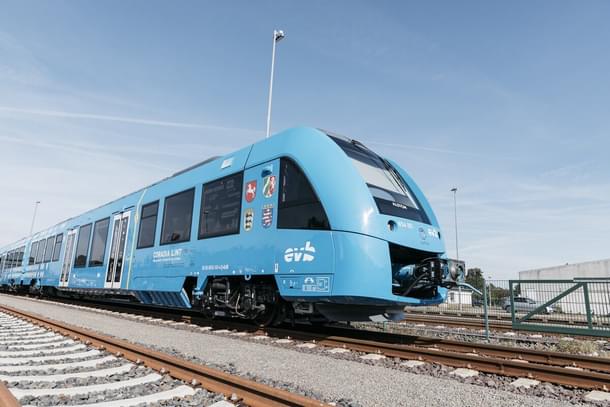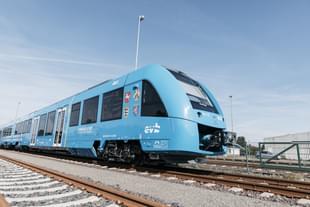News Brief
Cleaner, Quieter, Faster: India’s First Hydrogen Train Set To Hit Trials In December 2024
V Bhagya Subhashini
Nov 14, 2024, 05:12 PM | Updated 05:15 PM IST
Save & read from anywhere!
Bookmark stories for easy access on any device or the Swarajya app.


In a landmark step towards sustainable transportation, India is set to unveil its first hydrogen-powered train in December 2024, showcasing a revolutionary shift in rail travel.
This zero-emission train, which operates without diesel or electricity, marks a significant achievement for Indian Railways as it pursues its goal of becoming a "net zero carbon emitter" by 2030.
This hydrogen-powered marvel will be India’s first train to use water as the primary resource for generating power. Instead of traditional diesel or electric propulsion, the train uses hydrogen fuel cells to create the electricity needed to drive its engines.
Through a chemical reaction between hydrogen and oxygen, the fuel cells produce electricity, with steam and water as the only byproducts, resulting in no harmful emissions.
Compared to diesel engines, hydrogen-powered trains are quieter, producing 60 percent less noise.
This innovation is part of Indian Railways' ambitious effort to reduce its carbon footprint and eliminate the air pollution caused by diesel locomotives, making it one of the cleanest forms of transportation available today.
Features of the Hydrogen Train
The initial trial for the hydrogen train will be conducted on the Jind-Sonipat route in Haryana, covering a distance of 90 kilometers. Future routes under consideration include heritage mountain railways like the Darjeeling Himalayan Railway, Nilgiri Mountain Railway, Kalka-Shimla Railway, and other scenic areas.
The train is expected to reach speeds of up to 140 km/h, providing passengers with a swift, comfortable, and eco-friendly travel experience.
A single tank of hydrogen fuel will allow the train to travel up to 1,000 kilometers before needing to refuel, making it suitable for longer routes in the future, reports Financial Express.
Each hour, approximately 40,000 liters of water will be required to maintain the chemical processes necessary for generating electricity. Dedicated water storage and refueling facilities are being constructed to support the train’s operation.
With each hydrogen train costing around Rs 80 crore, Indian Railways is investing significantly in infrastructure updates, including hydrogen storage facilities and specialized refueling stations.
This infrastructure is crucial for supporting the expanded use of hydrogen trains, which will be essential in reaching the net-zero carbon target by 2030.
Following successful trial runs, Indian Railways aims to expand hydrogen train services across the country, with a goal of 35 hydrogen-powered trains operational by 2025.
These new trains will match the speed and capacity of traditional diesel trains, providing a sustainable alternative without compromising on efficiency.
V Bhagya Subhashini is a staff writer at Swarajya. She tracks infrastructure developments.





